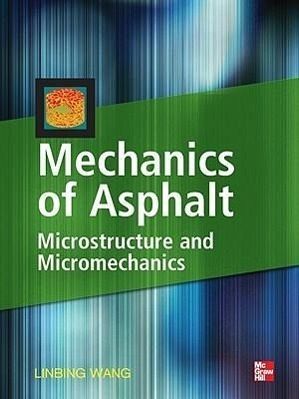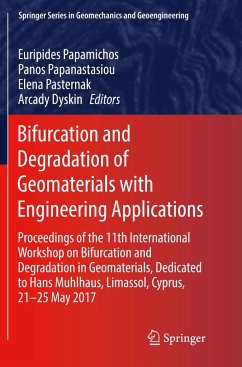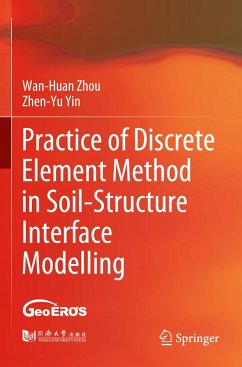
Mechanics of Asphalt: Microstructure and Micromechanics
Microstructure and Micromechanics
Versandkostenfrei!
Nicht lieferbar
Publisher's Note: Products purchased from Third Party sellers are not guaranteed by the publisher for quality, authenticity, or access to any online entitlements included with the product. A State-of-the-Art Guide to the Mechanics of Asphalt Concrete Mechanics of Asphalt systematically covers both the fundamentals and most recent developments in applying rational mechanics, microstructure characterization methods, and numerical tools to understand the behavior of asphalt concrete (AC). The book describes the essential mathematics, mechanics, and numerical techniques required for comprehending ...
Publisher's Note: Products purchased from Third Party sellers are not guaranteed by the publisher for quality, authenticity, or access to any online entitlements included with the product. A State-of-the-Art Guide to the Mechanics of Asphalt Concrete Mechanics of Asphalt systematically covers both the fundamentals and most recent developments in applying rational mechanics, microstructure characterization methods, and numerical tools to understand the behavior of asphalt concrete (AC). The book describes the essential mathematics, mechanics, and numerical techniques required for comprehending advanced modeling and simulation of asphalt materials and asphalt pavements. Filled with detailed illustrations, this authoritative volume provides rational mechanisms to guide the development of best practices in mix design, construction methods, and performance evaluation of asphalt concrete. Mechanics of Asphalt covers: * Fundamentals for mathematics and continuum mechanics * Mechanical properties of constituents, including binder, aggregates, mastics, and mixtures * Microstructure characterization * Experimental methods to characterize the heterogeneous strain field * Mixture theory and micromechanics applications * Fundamentals of phenomenological models * Multiscale modeling and moisture damage * Models for asphalt concrete, including viscoplasticity, viscoplasticity with damage, disturbed state mechanics model, and fatigue failure criteria * Finite element method, boundary element method, and discrete element method * Digital specimen and digital test-integration of microstructure and simulation * Simulation of asphalt compaction * Characterization and modeling of anisotropic properties of asphalt concrete










